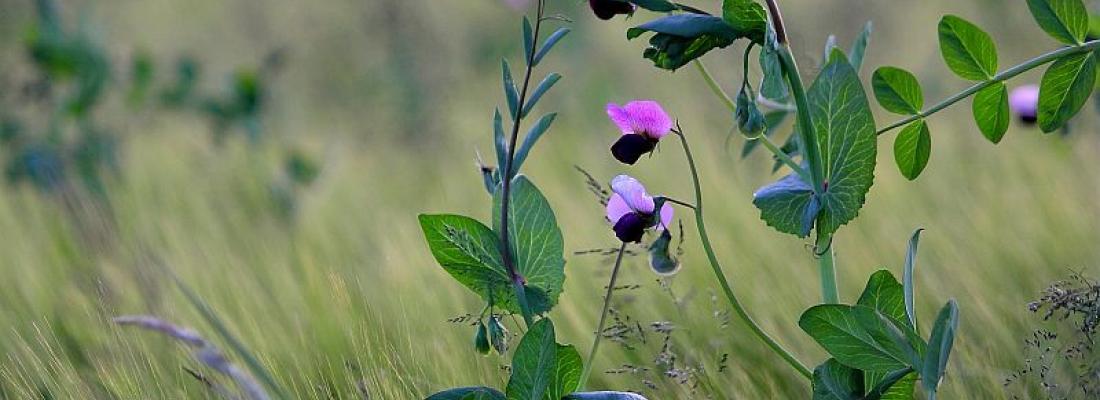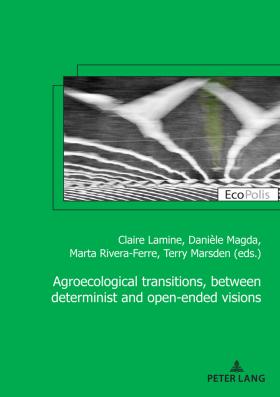Agroecology Reading time 3 min
Agroecological transitions, between determinist and open-ended visions
Published on 25 November 2021

Foreword by Philippe Mauguin, Chair and CEO of INRAE
By the end of 2020, the idea that the Covid-19 crisis was a mere parenthesis had dissipated. By measuring the impacts on our personal, social, cultural and economic lives, we all began to perceive that there was a before and an after, in other words that we had found ourselves in a deeper sort of transition.
It is as if the entire notion of “transition” has moved beyond the scientific sphere to apply to society as a whole. This new health situation thus makes this book all the more relevant. Of course, the aim here is to study the processes of a particular transition – the agroecological transition – but the questions raised by the group of 51 researchers from eight different countries will certainly find echoes in the debates within the political world and civil society: How can we understand and describe the processes of change? Must we have a specific goal for the transition – the “after” – already in mind, or can it be developed throughout the transition process itself with some room left for indetermination?

This research and work on the agroecological transition are especially necessary as it is a complex phenomenon. It is complex first of all because it is multidimensional: the changes are technical, social, ecological and political all at the same time. But it is also complex because it takes place at several scales, from the farm (or even the farm plot) to the food systems.
Given such complexity, it is useful to delve into the “hows” of the agroecological transition. Debates are thus open among scientists regarding the processes of change and their different visions of change. Should a global and systemic approach be favoured – one that involves more ←19 | 20→than a particular profession or economic sector – since the transition is not strictly limited to farmers but requires the mobilization of the entire chain, from production to consumption? Or would it be better to take an approach based primarily on the drivers of technical innovation? Is it necessary to adopt a “deterministic” perspective based on the predetermination of the end goal or an “open-ended” perspective that views indetermination as an asset?
By informing this debate and taking account of the many ways the agroecological transition can be addressed, this book aims to make visible the “state of the art,” to give tools to those implied in agroecology and to contribute to the expanding field of research on transitions.
At INRA, this subject was handled by the Science for Action and Development (SAD) Division, which became since 1 January 2020 within INRAE the Sciences for Action, Transitions and Territoiries (ACT) Division. This division supports an approach to agroecology that takes actors’ visions and practices into consideration. In this way, it has helped to formulate research questions about the transition, focusing on processes of change and not just the application of agroecological principles. This book is a product of the division’s scientific priority “agroecology for action.” This is why it includes contributions from not only INRAE researchers but also scientists from french and foreign universities. This is also why it adopts a resolutely interdisciplinary approach by drawing from the life sciences, technical sciences and social sciences.
Each disciplinary field represented in the book sheds light on the connections between the “deterministic” and “open-ended” perspectives and analyzes how “deterministic” phases and “open-ended” phases can alternate. In the end, it is indeed the combination of these trajectories that should enable the large-scale deployment of agroecology.
Without concluding or settling the debate, this book provides arguments in favour of transition paths where actors are stakeholders who are involved in governance arrangements, and where scientific knowledge and practical knowledge are hybridized within new modes of collaboration with all public and private actors, within spaces such as living labs, transformative labs and multi-actor observatories.
EDITORS
Claire Lamine: Claire Lamine is sociologist and research director at INRAE. She develops interdisciplinary approaches to agroecological transitions at the scale of agri-food systems and studies the processes of institutionalisation of agroecology in France and Brazil.
Danièle Magda: Danièle Magda is an ecologist and research director at INRAE. She worked on agroecological practices learning in farming systems and now develops interdisciplinary research on the diversity of visions on ecologisation and of relationships to nature in the transition of agrifood systems.
Marta Rivera-Ferre: Marta Rivera-Ferre is Research Professor at INGENIO (the Spanish National Research Council) and UPV. She focuses her research on agroecology and food sovereignty as strategies to increase the sustainability of food systems, as well as in the place of feminists and commons theories in agri-food research.
Terry Marsden: Terry Marsden is Emeritus Professor at the School of Geography and Planning and the Sustainable Places Research Institute at Cardiff University. He has worked extensively in the fields of rural development, agri-food studies and sustainability.
INFORMATION / DOWNLOAD / ORDER
- Pages: 318
- ISBN (PDF): 9782807618534 Free Download (PDF)
- ISBN (ePUB): 9782807618541 Free Download (ePUB)
- ISBN (MOBI): 9782807618558 Free Download (MOBI)
- ISBN (Livre): 9782807618527 Order
- Published: Brussels, Berlin, Bern, New York, Oxford, Warsaw, Vienna, October 2021. 318 p.
